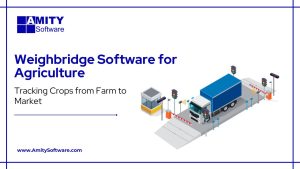Insurance companies face constant pressure to manage growing volumes of policies, handle increasingly complex claims, and stay compliant with ever-changing regulations. Manual processes slow operations, create errors, and frustrate customers. IT teams struggle with outdated systems, executives lack real-time insights, and compliance officers face constant risk of fines.
Software for the insurance industry is designed to automate workflows, reduce errors, and improve customer service. From claims processing to policy administration and regulatory compliance, the right software can save insurers time, cut costs, and provide actionable insights. In this article, we explore the types of insurance software, their core features, and how companies can leverage these solutions for operational excellence.
What Is the Best Software for The Insurance Industry
Software for insurance industry transforms how insurers manage claims, policies, and compliance. By automating workflows, improving accuracy, and ensuring regulatory adherence, the right software reduces errors, speeds up processes, and enhances customer satisfaction—making it an essential part for modern insurance operations.
Why Software for Insurance Industry Is Critical Today
The insurance industry has evolved rapidly. Customers demand faster responses, regulators require precise reporting, and insurers handle exponentially more data than ever before. Manual processes or fragmented systems create bottlenecks, increase errors, and limit scalability.
Case in Point: A mid-sized insurer in Africa implemented an end-to-end insurance software solution and reduced policy issuance time by 50%, while claims turnaround improved by 35% within the first year.
Key Benefits at a Glance
- Faster Claims Processing: Automates approvals, tracks claims, and ensures accurate documentation.
- Efficient Policy Management: Centralizes data, simplifies renewals, and integrates with CRM systems.
- Regulatory Compliance: Real-time monitoring ensures adherence to complex regulations.
- Data-Driven Decisions: Analytics dashboards guide underwriting, pricing, and risk mitigation.
Why Software for Insurance Industry Matters
The insurance industry is evolving rapidly, and technology plays a central role in that transformation. Insurance companies must process large volumes of policies, handle complex claims, and maintain strict regulatory compliance. Manual systems slow down operations and increase the risk of errors. Implementing software for insurance industry operations streamlines workflows, improves accuracy, and ensures compliance, allowing insurers to focus on customer service and strategic growth.
Streamlining Claims Processing
Claims are the lifeblood of any insurance company, and inefficient processing can frustrate clients and create financial risk. Insurance claims software automates approvals, tracks claims status, and provides real-time notifications. Large insurance firms have reported a reduction of up to 40% in processing time after deploying automated claims solutions.
Simplifying Policy Management
Managing policies manually is time-consuming and error-prone. Policy administration software centralises client data, automates renewals, and integrates with CRM tools for enhanced customer experience. From issuance to policy updates, insurance software solutions help insurers operate efficiently while keeping clients informed.
Ensuring Compliance
Regulatory compliance is a major challenge for insurers. Insurance compliance software ensures that all policies, claims, and reporting adhere to local and national regulations. By tracking obligations in real time, insurers minimize the risk of fines and audits while improving internal accountability.
Types of Software for Insurance Industry
Choosing the right software depends on your company’s size, workflows, and goals. Here’s a quick overview of the main types:
| Software Type | Key Features | Ideal For |
| Claims Management | Automated claims, workflow dashboards | Claims teams |
| Policy Administration | Policy lifecycle, renewals, integrations | Underwriters, agents |
| Compliance & Audit | Real-time reporting, alerts | Compliance officers |
| End-to-End Platforms | All-in-one solution | Large insurers, startups |
| Cloud-based Solutions | Scalability, remote access | IT managers, distributed teams |
To choose the right solution, evaluate your workflow needs, integration capabilities, and scalability. Many vendors offer demos—using best insurance management software with free demo options is a practical way to assess whether a platform fits your operations.
Benefits of Implementing Software for Insurance Industry
Implementing specialized software can transform an insurance firm in multiple ways:
- Operational Efficiency: Automation reduces manual errors and frees staff for higher-value tasks.
- Improved Customer Experience: Faster claims and policy management enhance client satisfaction.
- Data-Driven Decisions: Analytics provide insights for pricing, risk assessment, and strategy.
- Scalability: Insurance software solutions for companies allow expansion without operational bottlenecks.
- Compliance Assurance: Regulatory adherence is tracked automatically, reducing risk.
Challenges and Solutions for Insurance Industry
| Challenge | Solution |
| Integration with legacy systems | Use cloud-based middleware for phased migration |
| Employee resistance | Conduct interactive training and assign power users |
| Data security | Choose software with built-in encryption, audit trails, and multi-factor authentication |
| Cost concerns | Evaluate long-term ROI with process efficiency and error reduction metrics |
Even with the best software, insurers may face implementation challenges:
- Integration with Legacy Systems: Cloud insurance software allows phased migration and smooth interoperability.
- Employee Adoption: Training and onboarding programs ensure teams embrace the new system.
- Data Security: Compliance-focused software with encryption and audit logging protects sensitive information.
Best Practices for Using Insurance Software
To maximize ROI and efficiency:
- Map workflows clearly before implementation.
- Choose vendors offering robust support, updates, and security features.
- Audit software regularly for compliance and performance metrics.
- Leverage analytics dashboards to monitor KPIs.
Encourage cross-department collaboration for smooth operations.
Final Take
Adopting the right software for the insurance industry is no longer optional—it is a defining factor in operational efficiency, regulatory compliance, and competitive advantage. From accelerating claims processing to streamlining policy management and ensuring audit-ready compliance, the right platforms empower insurers to work smarter, respond faster, and scale confidently.
The real winners are those who combine technology with strategic implementation: carefully selecting solutions that match workflows, training teams to maximize adoption, and continuously monitoring performance to drive measurable results. Whether you are a large insurer, a startup, or an IT manager evaluating systems, investing in the right insurance software is an investment in accuracy, efficiency, and long-term growth.
In a market where speed, compliance, and customer satisfaction are paramount, software for insurance industry is not just a tool—it is the backbone of modern insurance operations.
FAQs
Q1: What is the best software for insurance companies?
It depends on company size and workflow needs. End-to-end platforms are ideal for large insurers; cloud-based solutions work well for distributed teams and startups.
Q2: How much can claim automation improve processing time?
Case studies show reductions of 30–50%, depending on workflow complexity.
Q3: Are cloud insurance software platforms secure?
Yes, modern cloud platforms provide encryption, compliance tracking, audit logs, and secure remote access.
Q4: How do I evaluate software vendors effectively?
Assess functionality, integrations, scalability, ROI potential, and customer support. Use demos and proof-of-concept trials to validate claims.
Q5: Can insurance software help with regulatory compliance?
Absolutely. Compliance modules automate reporting, track multi-state regulations, and maintain audit trails, reducing fines and operational risk.

































